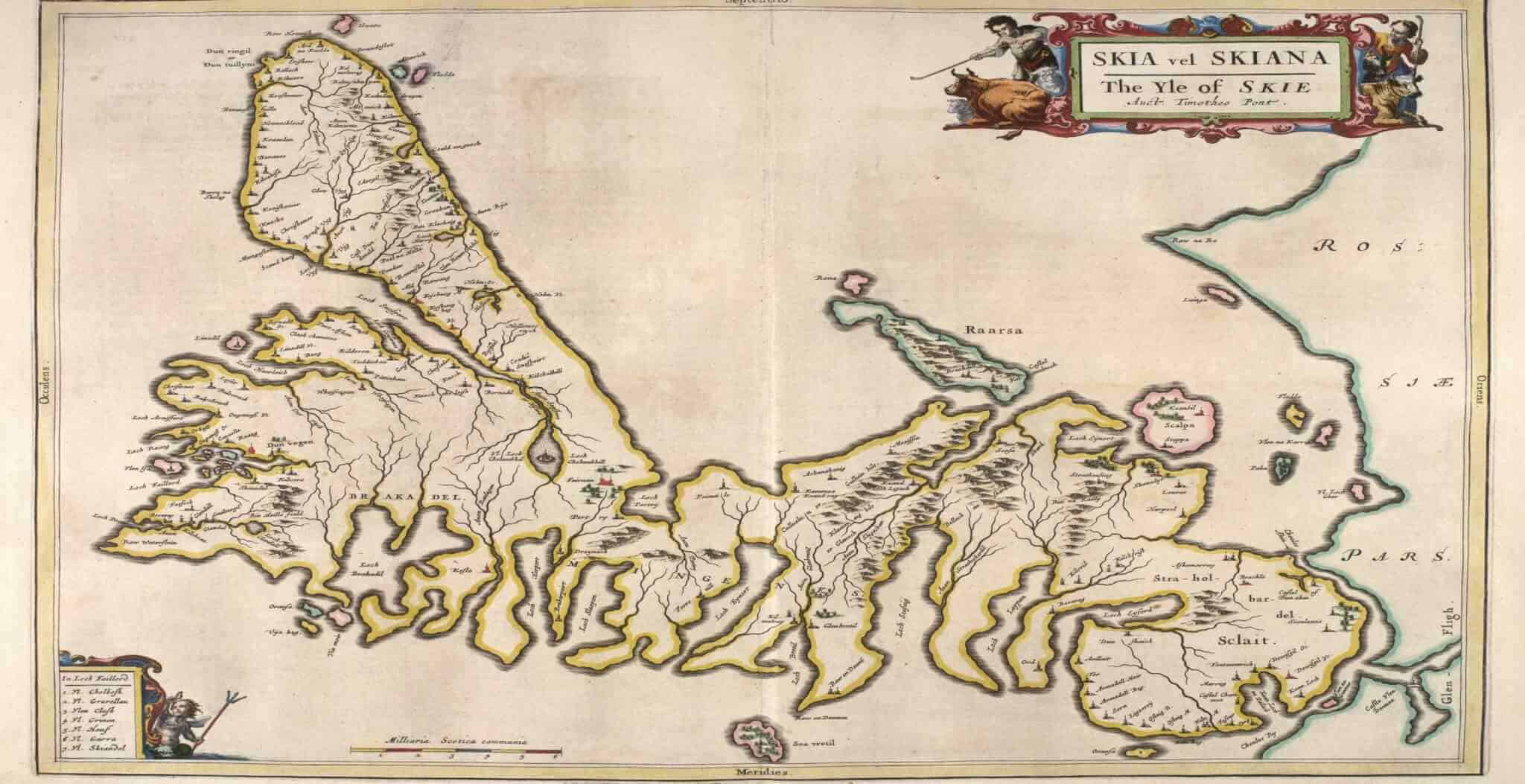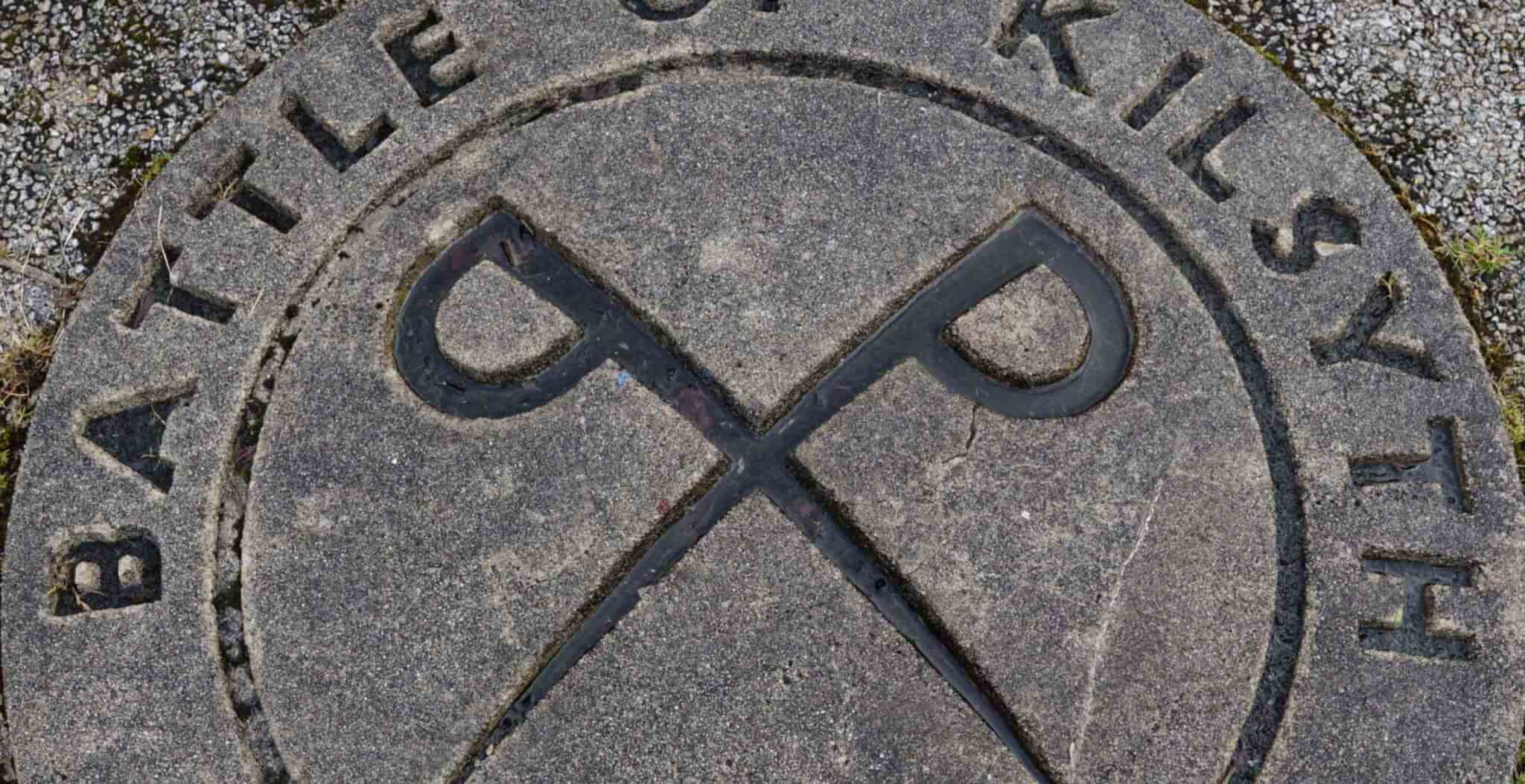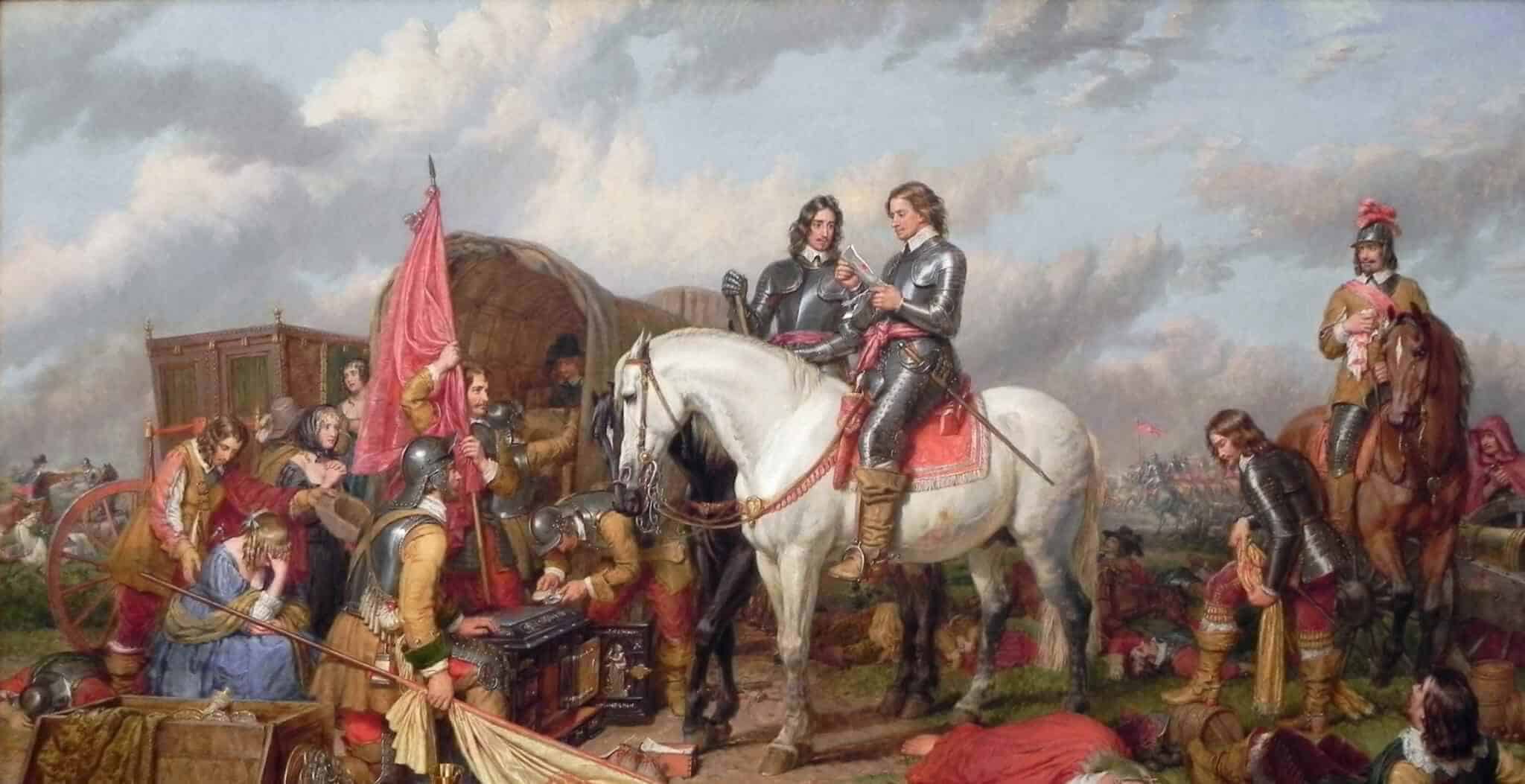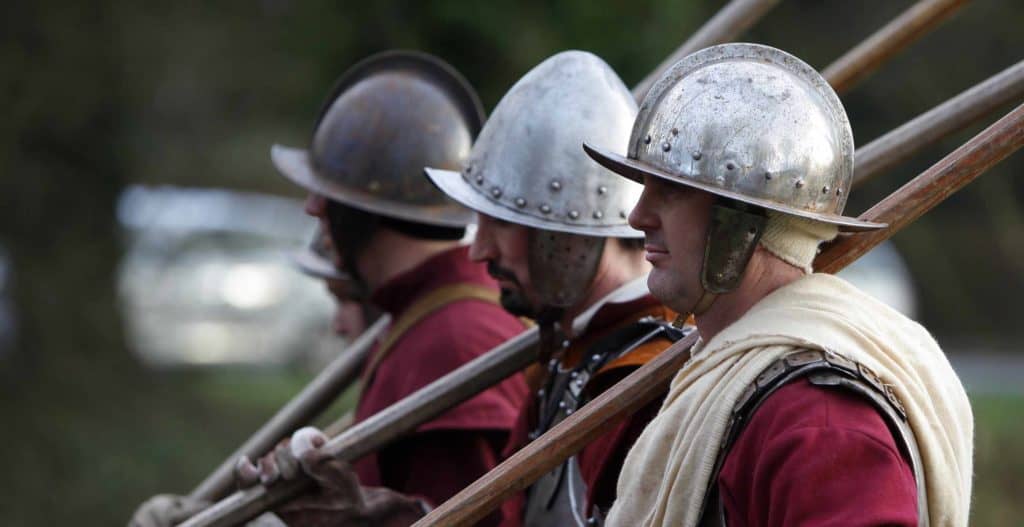Fought between a Scottish Covenanter army allied with the English Parliament, and the Royalist forces of Charles I under the command of the Marquis of Montrose (pictured above left), the Battle of Alford was fought on 2nd July 1645.
With limited resources at his disposal Montrose had already secured a series of victories over Covenanter forces across the Highlands of Scotland.
Fearing an attack by Montrose on Aberdeen, the Covenanter army led by the experienced commander Major-General William Baillie marched to cut him off.
With armies of comparable size, around 2,500 men on each side, it was Montrose who took up his position first, on a small hill overlooking a ford across the River Don near the village of Alford.
When the Covenanter army arrived, Baillie quickly recognised that his troops would be vulnerable to attack if they attempted to cross the ford and so hesitated in doing so. Travelling with Baillie however, was a contingent from the ruling Covenanter Committee who overruled his decision and ordered him on to battle.
As Baillie had anticipated, Montrose waited until the Covenanter cavalry had crossed the river, and the infantry were in the process of doing so, before he attacked.
The two sets of cavalry were involved in fierce fighting when Montrose released his force of Gordon infantry; with this, the Covenanter infantry broke.
The resulting Covenanter infantry losses were heavy as the troops’ only escape route was back across the ford. Cavalry losses were much lighter, with Baillie and the Covenanter Committee all evading capture.
Click here for a Battlefield Map
Key Facts:
 Date: 2nd July, 1645
Date: 2nd July, 1645
War: Wars of the Three Kingdoms
Location: Alford, Aberdeenshire
Belligerents: Royalists, Scottish Covenanters
Victors: Royalists
Numbers: Royalists around 2,500, Scottish Covenanters around 2,500
Casualties: Royalists around 400, Scottish Covenanters around 1,500
Commanders: Lord Montrose (Royalists), General William Baillie (Scottish Covenanters – pictured to the right)
Location:







